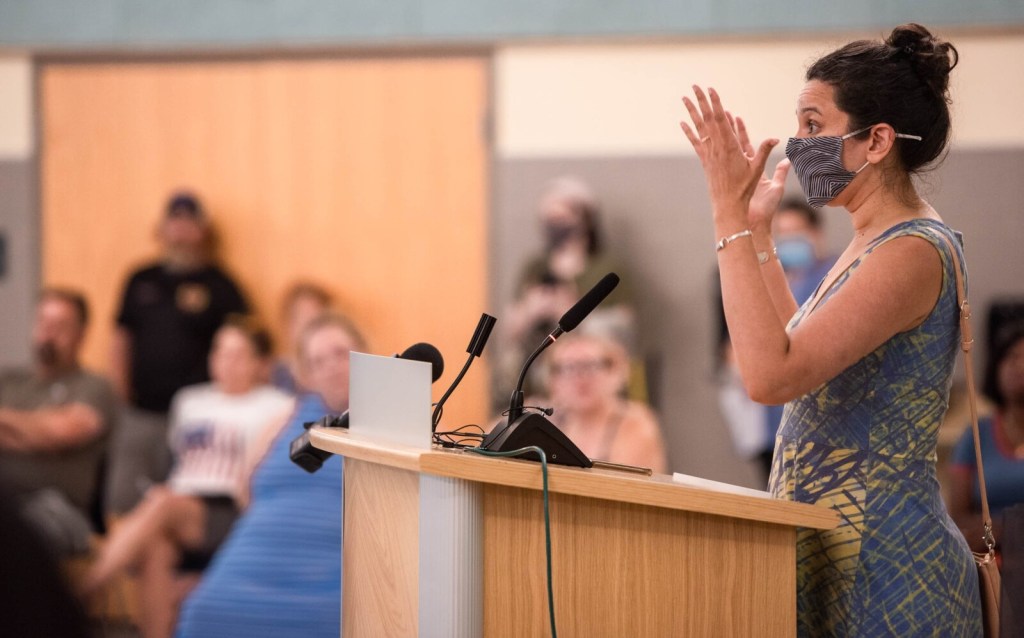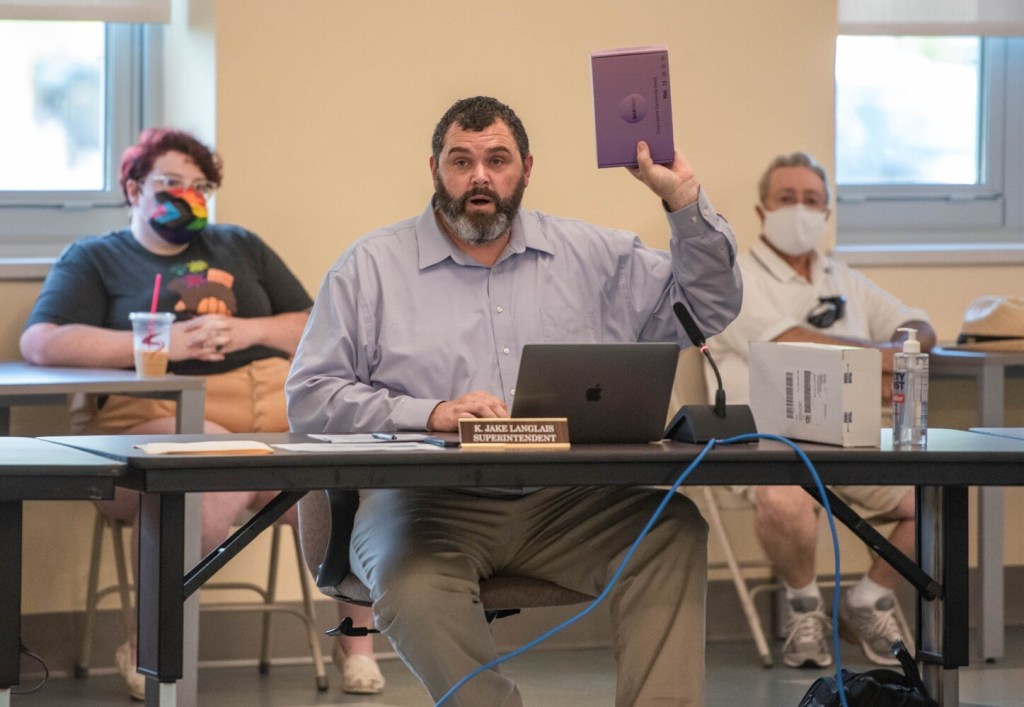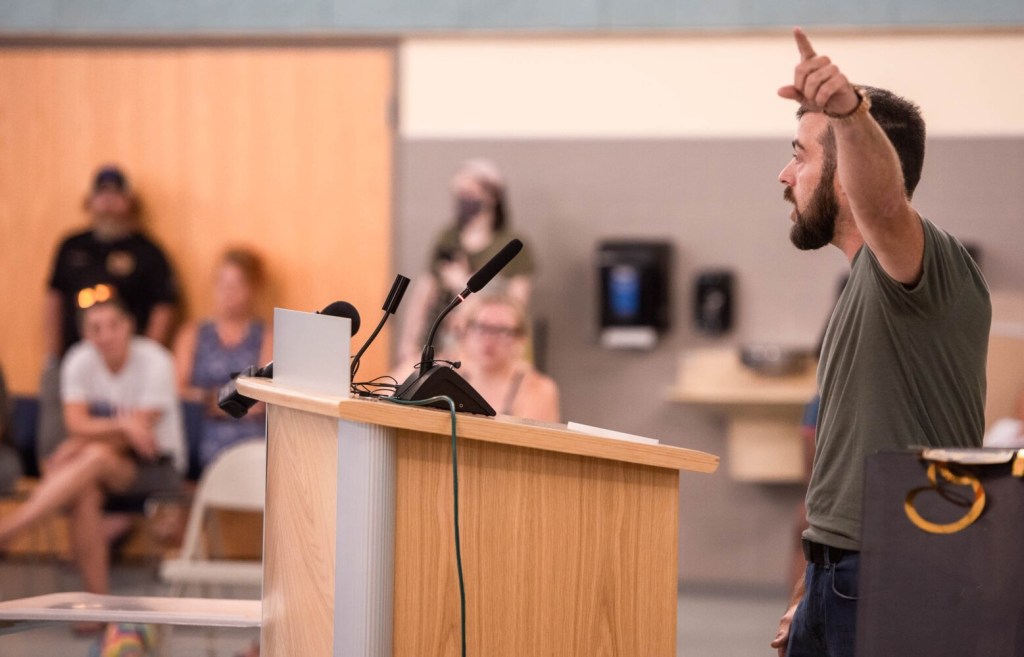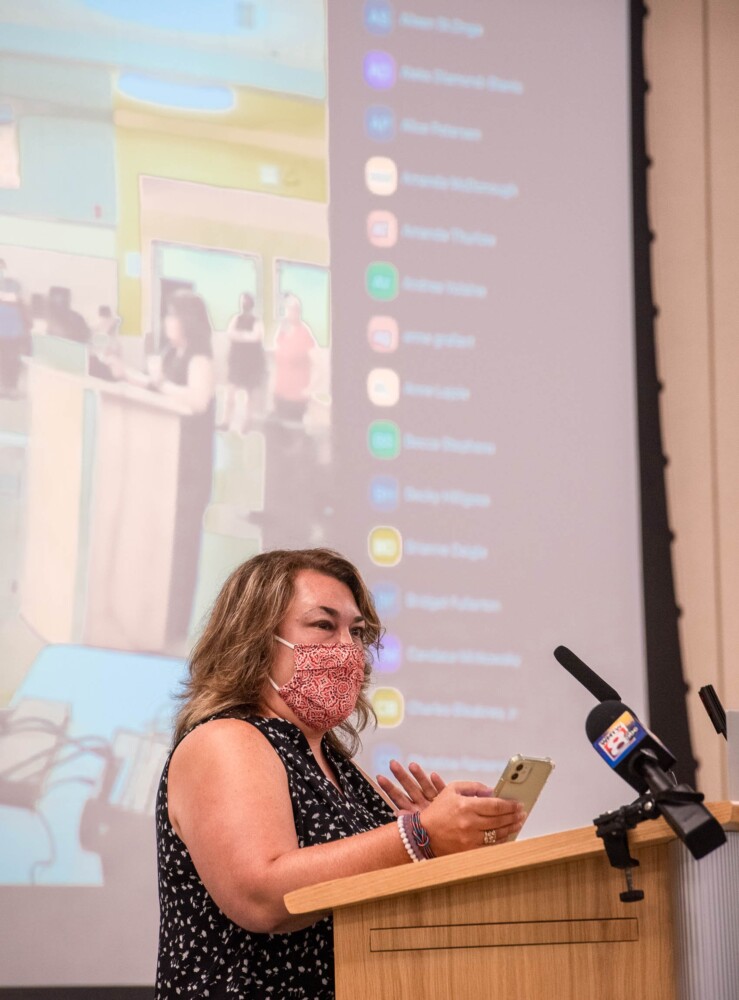LEWISTON — The School Committee voted 5-4 Thursday night to require masks as recommended by the superintendent.
After hours of public comment on the pros and cons of masking, the committee voted down a motion by member Janet Beaudoin to adopt a “family choice” option that would make masks optional based on level of community transmission.
Members Paul Beauparlant, Kiernan Majerus-Collins, Luke Jensen, Lynnea Hawkins and Vice Chairman Bruce Damon voted in favor of a motion by Majerus-Collins to adopt the superintendent’s recommendation.
A rowdy and sometimes rude crowd — some yelling “freedom” as others spoke — applauded Beaudoin’s motion. Many argued that masks are ineffective in protecting people from COVID-19 and presented lists of things more deadly, such as car accidents and suicide, than the virus.
Others, including the president of the Lewiston Education Association, urged the committee to require masks. Allison Lytton told the committee that a survey of members showed two-thirds were “concerned” about optional masking.
Superintendent Jake Langlais had changed his recommendation from optional to mandated masking. He offered other options, including the one that Beaudoin supported.
“If we can do things to mitigate kids being sent home, we should do that,” he said in recommending required masking.
Earlier in Thursday’s meeting, the committee unanimously approved a method called pooled testing to monitor students and staff for COVID-19.
Participation in the testing requires parental consent and involves a “self-swab” process using short, noninvasive swabs.
The program was implemented by the Maine Department of Health and Human Services and the Maine Department of Education in May.
Langlais recommended the program to help keep schools open as the pandemic continues.
“Pooled testing is likely to pick up on kids who had no idea they had it,” he said. “The sense is that there is asymptomatic spread. This allows us to find students who have no symptoms.”
The committee heard from about a dozen parents and residents, some of whom supported the testing and some who argued against it.
According to the DOE, the process involves collecting swabs from set groups of students and staff in a cohort or homeroom, placing the swabs in a common test tube, mixing the samples in a batch and testing the pooled sample.
Results are available within 48 hours, Langlais said.
If the results are positive, everyone in the pool will be given a rapid antigen test at school. Those testing positive and any close contacts not in the pool would be quarantined. Those testing negative would not be quarantined, but they would be monitored going forward.
The tests would be given once a week. At least 30% of students per school would have to participate for the results to be useful, Superintendent Jake Langlais said Thursday. If that threshold isn’t met, those schools cannot use pooled testing, he said.
He said if a student does not participate in his or her group’s testing and a positive result comes back, that student likely would be considered a close contact.
“There would be much more potential for quarantine,” he said.
A company called Concentric, with labs across the country, would do the testing. According to its website: “Our test uses short, easy-to-use swabs, not the invasive brain ticklers.”
Swabs are individually wrapped, so they stay sanitized, Langlais told the School Committee on Wednesday.
Pooling lowers costs to $6 per person, according to Concentric. The tests would be state funded through the American Relief Package.
Langlais said Concentric offers site-based assistance. School nurses would be available to help.
Send questions/comments to the editors.






Success. Please wait for the page to reload. If the page does not reload within 5 seconds, please refresh the page.
Enter your email and password to access comments.
Hi, to comment on stories you must . This profile is in addition to your subscription and website login.
Already have a commenting profile? .
Invalid username/password.
Please check your email to confirm and complete your registration.
Only subscribers are eligible to post comments. Please subscribe or login first for digital access. Here’s why.
Use the form below to reset your password. When you've submitted your account email, we will send an email with a reset code.